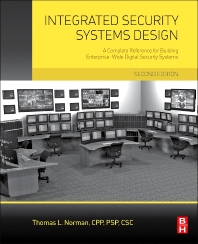Team building is a prevailing topic in current leadership literature for good reason. Attracting the right balance of talent to your team is a tall order for many modern managers grappling with the challenge of the “do more with less” culture that prevails in today’s economized workforce. When your options are limited it’s important that you consider the character of the individual that you recruit to your team, in addition to his or her sheer talent. As service is the essence of an authentic team in a service-minded organization, so should service to others be prevalent in the profile of the people that comprise it. In building your team, how do you go about identifying these stars that focus on service to others?
Service-minded people reveal themselves in many ways. There are the obvious acts of volunteerism and charitable works. Then there are the more subtle individual traits such as empathy, awareness and active listening. While it’s easy to assess the volunteerism of a candidate based on their list of causes, charitable actions and involvement with philanthropic organizations, it may be more difficult to gauge the more subtle structures of their personality associated with ethical and caring behavior. What you are looking for is not someone who does right just because they are following the rules, but someone who more spontaneously performs the right action because it’s a function of who they are as a person.
One avenue of discovery that you have available to you as an employer is in the realm of professional personality assessments. You can perform these measurements on new-hire candidates as well as use them to assess the attributes of current employees. Choose assessments that feature the character traits you desire in your team members. You can hire a practitioner or firm skilled in psychology and human resources to help you to select the tool, administer the test and analyze the results.
If a personality assessment sounds like a good idea, but you are stumped on coming up with a list of desired attributes to measure, the “Ten Characteristics of a Servant Leader” (http://bit.ly/VjTfLq) is a good place to start.
The concept of servant leadership is historically attributed to Robert K. Greenleaf who was known to have coined the phrase “servant-leader” in 1964. (https://greenleaf.org/about-us/) Some of the essential traits exhibited by servant leaders as outlined by Greenleaf include listening, empathy, awareness, stewardship, commitment to the growth of people and building community. A person who readily embodies these qualities will lend themselves well to supporting a service-minded culture in your company. While some of these characteristics come quite naturally to some people, the good news is that these behaviors can be adopted and enhanced through learning and practice. An online search of the topic “servant leadership” will reveal many sources for training courses, books and workshops.
Undoubtedly, the best source to inform the qualities of persons who make up your team should be your company credo or mission statement. To create a sense of unity and purposefulness, the members of your team should agree to uphold together a code of behaviors that they personally believe in. Your credo outlines “how we serve our customers” as well as an internal pledge for “how we serve the members of our own team, support the vision of the company and defend the mission.”
Many times a service-minded organization also includes in their duties their intentions for giving back to their community. Your credo or mission statement should serve as the architecture for the standards you set for your people and your company and how you behave in the world as an organization. It speaks to your values, your ethics, and your personality as an entity. These statements must also hold meaning for your employees. Your people should be able to proudly recite the essence of your goals, your mission and your vision.
To be most impactful, your day-to-day operational means, methods and processes should reflect the spirit of your values. If you hire ethically grounded individuals you must provide them with ethical empowerment in their daily work. This includes honesty in communications, transparency in reporting and decision-making abilities to correct errant situations on behalf of a customer (with governance, of course).
Creating and directing a successful team requires a skillful combination of good recruiting, governance, diplomacy and vision. All of these indispensable elements become much more fluid and effortless when your team vison is defined by service and comprised of a community of individuals devoted to a higher purpose. n
About the Author
Barbara Shaw is director of education at PSA Security Network.
Resources from PSA Security Network
Learn more about PSA Security Network’s Leadership Committee at www.psasecurity.com/education/committees/leadership
The Future of Work
Keynote speaker, author and futurist Jacob Morgan shares insights, ideas and commentary on the future of work in blogs and videos that run five minutes or less, titled, The Future in Five. Some of the topics are: “Can You Teach Leadership,” “How to Create a Corporate Culture When Your Teams Are Remote,” “What is The Biggest Barrier to Change?” “When Did ‘Manager’ Become a Bad Word?” and “Evolving from Knowledge Workers to Learning Workers.” Check it out at www.thefutureorganization.com/future-five/








